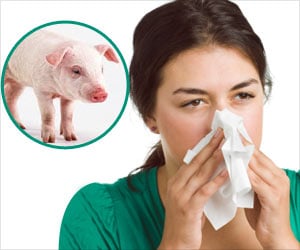Australia on Tuesday warned Aborigines may be at high risk from swine flu and rushed medical supplies to remote indigenous communities, as the country announced its second death linked to the virus.
Australia on Tuesday warned Aborigines may be at high risk from swine flu and rushed medical supplies to remote indigenous communities, as the country announced its second death linked to the virus.
Health Minister Nicola Roxon said high disease rates among Aborigines, who suffer the country's worst poverty and ill health, could make them particularly vulnerable."We know many of the chronic diseases that they suffer from are indicators that swine flu may actually hit them harder than some others in the community," she told public radio.
A 26-year-old Aboriginal man with swine flu and other medical problems died in Adelaide on Friday, setting alarm bells ringing about the virus's possible impact on the indigenous community.
On Tuesday, officials said a non-Aboriginal man, 35, who had swine flu and "significant underlying medical problems" had died in Victoria of apparent respiratory failure at the weekend.
Despite the country's second swine flu-related death, Victoria's acting chief health officer Rosemary Lester said the virus, which has infected 2,733 people here, was not considered life-threatening in most cases.
"It is important to remember that in the vast majority of cases, human swine flu is a mild illness which many people recover from without any medical treatment," she said.
Advertisement
An emergency medical response team was due to arrive in the dead Aboriginal man's isolated home settlement of Kiwirrkurra in Western Australia carrying anti-flu medicine, face masks and cleaning products to contain any infection.
Advertisement
The number of confirmed cases in the Territory approximately doubled in the past week to 61, with three children hospitalized in Alice Springs.
Territory health minister Kon Vatskalis said the government was closely monitoring the situation in Outback settlements and town camps, the ghettos on the outskirts of urban areas where many Aborigines live.
"Anti-viral medications and personal protective equipment have been distributed to all remote health centers and general practices," he said.
"In remote communities where the infection has arrived or seems imminent, immediate testing and treatment is being offered to those people with influenza symptoms and established risk factors."
Australia's 520,000 Aborigines make up about 2.5 percent of the population, but have a life expectancy 17 years shorter than the national average. They also have higher rates of imprisonment, child mortality and alcoholism.
The rapid spread of the virus in Australia helped persuade the World Health Organization to declare the first global pandemic in 40 years this month.
Australia last week changed its swine flu alert level to "protect," meaning only the most vulnerable receive anti-viral treatments such as Tamiflu while those with mild symptoms must rely on over-the-counter medicines.
Source-AFP
LIN










